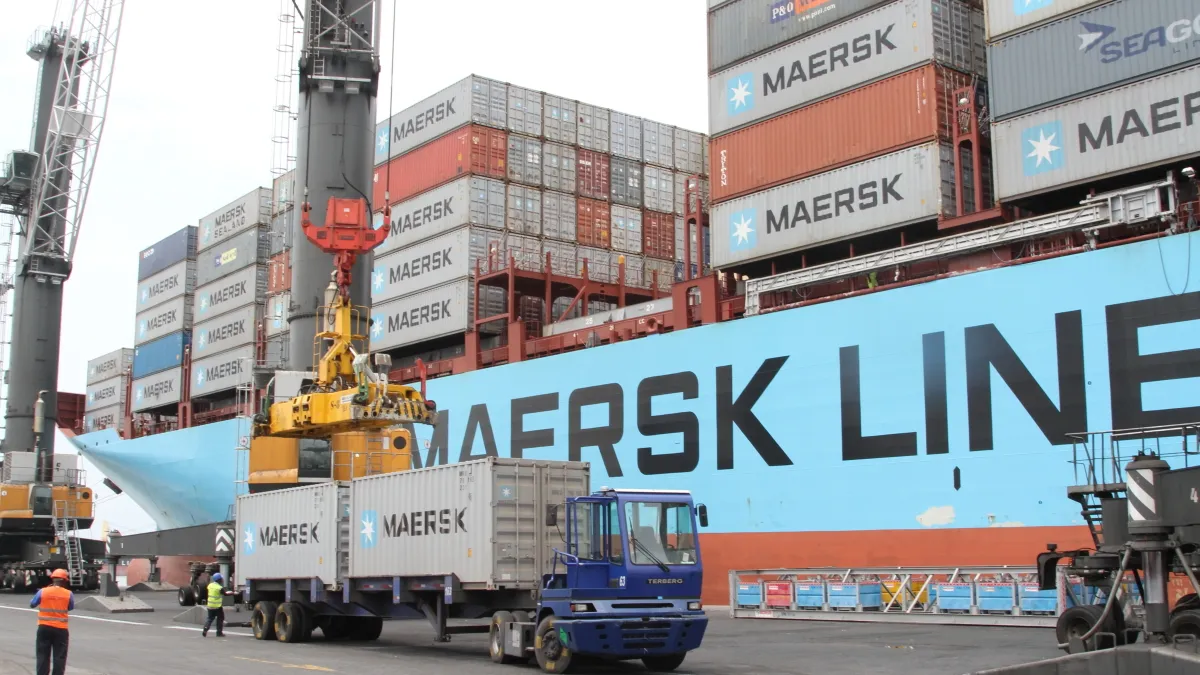Dive Brief:
- A.P. Moller - Maersk struck a deal with PBF Logistics to process crude oil for the carrier at a PBF facility in Parsippany, New Jersey, so Maersk Oil Trading can sell IMO 2020 compliant fuel to its customers, according to a press release.
- PBF Logistics Executive Vice President Matt Lucey said the company will be able to process roughly 25,000 barrels per day of crude for Maersk. The ocean carrier has also announced a leasing agreement to store approximately 20% of Maersk’s annual fuel demand at the Vopak Europoort Terminal in Rotterdam.
- "The vast majority of our fleet will comply with the regulation through use of compliant low sulfur fuels. With the capability to produce and store compliant low sulfur fuel on the U.S. East Coast we take control of the fuel supply in a key maritime hub for us. We will continue our drive to ensure compliance in all geographies come 2020," said Niels Henrik Lindegaard, the head of Maersk Oil Trading.
Dive Insight:
An adequate supply of low-sulfur fuel is essential to keeping the cost of the IMO 2020 transition in check, so it makes sense that carriers are getting their suppliers locked down. After all, 60% of a ship's operating cost is fuel.
The fuel problem is somewhat of a chicken-egg scenario: refiners need to prepare for a market, but they don't yet know its size. So which comes first: the supply or the demand?
This move by Maersk, and the similar deals that will likely follow from other carriers, is an attempt to head that conundrum off at the pass.
"The refining industry will have to alter its current product slate, increase the supply of low-sulfur fuels and manage excess supply of high-sulfur fuels," Spencer Welch, director of oil markets and downstream at IHS Markit, wrote in a blog post. Welch told Supply Chain Dive in January that the price of low-sulfur ship fuel will likely increase by 50% in the run-up to enforcement for the new sulfur cap. But price predictions are all over the map because of the difficulty in predicting how refiners will prioritize.
If and when ocean carriers sort out their new fuel supplies, other freight modes must deal with the ripple effects. Experts are split on whether the change of operations at refineries will cause a glut or shortage of jet fuel, according to Bloomberg, and airlines are already starting to hedge against price hikes.
Marine gasoil, one IMO 2020 compliant option, is very similar to diesel and jet fuel, so the trucking industry will likely feel the effects as well.















